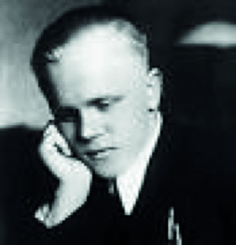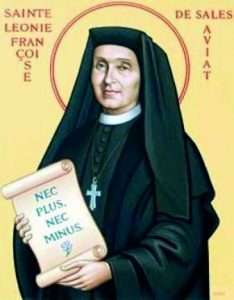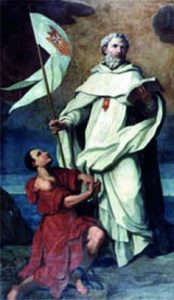January Saints
 Blessed Lojze Grozde (1923-1943)
Blessed Lojze Grozde (1923-1943)
Lojze Grozde was born, an illegitmate child, on 27 May 1923 in the village of Gorenje Vodale, Slovenia. When he was four, his mother married, but his stepfather kept the boy away from his mother as much as he could. Because Lojze was a good pupil at school, the stepfather changed his attitude and allowed the boy to stay at the house, where an aunt, helped by some benefactors, took care of him.
The lad became an outstanding student in secondary school, where he also became a member of Catholic Action and the Marian Congregation. Towards the end of his secondary schooling, World War II was approaching. The young man sought his path in life through meditation and learning, in deep prayer, and in apostolic work for others.
During his summer holiday in 1942 he did not go home. The increasing violence in Europe rendered travel difficult. It was not until New Year 1943 that he decided to visit his relatives and asked for a permit to travel home. First he visited a friend in the village of Struge. On 1 January 1943, he attended Mass in a local monastery, received Holy Communion, then travelled by train as far as Trebnje, where destroyed rails stopped his progress.
Continuing his journey on foot, he obtained a ride in a cart as far as Mirna. Here, he was seized and interrogated by a partisan guard. On him were found a copy of The Imitation of Christ and a booklet on Our Lady of Fatima. This was enough to condemn him as an informant – of what, who knows? – and he was tortured and killed.
Towards the end of February that year, his fate was partly revealed. School children picking snowdrops found his corpse. Although there were traces of torture on his body, the corpse itself was incorrupt. Lojze’s body was taken to a nearby town where a report was prepared. He was buried at the cemetery in Sentrupert because the difficult circumstances made it impossible to bury him in his home town.
Blessed Lojze, help us to be true disciples of Jesus.
(Source: Internet – various)
 Saint Leonie Francoise de Sales Aviat
Saint Leonie Francoise de Sales Aviat
Léonie Aviat, was born in Sézanne, on 16 September 1844, to shopkeepers, Theodore Aviat and Emilie Caillot, and was baptised the following day. At the age of 11, she attended the Convent School of the Visitation in Troyes, as a boarder. While attending school there, she was taught and spiritually guided by the Venerable Mother Marie de Sales Chappuis and Fr. Louis Brisson.
Fr Brisson, concerned about the young men and women, usually homeless, who had moved from the countryside to the city to find work in industrialised factories and textile mills, established shelters where they learned the truths of their Catholic faith and avoid the moral pitfalls that surrounded their daily lives.
Together with Léonie, he founded the Oblate Sisters of St. Francis de Sales, who oversaw the education of young girls. In 1868, Leonie received the habit, her new name: Sister Françoise de Sales Aviat and became the first Superior General.
Besides the social apostolate, she established parish schools and a girls’ boarding school in Paris. The secularisation of France forced her to transfer the Motherhouse to Perugia, Italy. Mother Aviat died on 10 January 1914.
Saint Leonie, make us aware of the plight of the less fortunate.
(Source: http://en.wikipedia.org/wiki/Leonie_Aviat)
 Saint Peter Nolasco (1189–1256)
Saint Peter Nolasco (1189–1256)
Peter Nolasco was born at Mas-des-Saintes-Puelles, France, in 1189. As a teen in Barcelona, he was appointed tutor to the young king, James I of Aragon. He began ransoming Christian captives in 1203. After fifteen years of work, Nolasco and his friends saw that the number of Christian captives of the Moors was growing day by day, and in 1218 formed and led a congregation of men that became the Royal and Military Order of Our Lady of Mercy of the Redemption of the Captives.
The order originally attracted young noblemen whose heritage equipped them to practically address the matter of ransom, and friars who were in holy orders. The founder required of himself and his followers a special vow in addition to the usual three - to devote their “whole substance and very liberty to the ransoming of slaves,” even to the point of acting as hostages in order to free others. He died in 1256 in Barcelona, seven years after having resigned as Superior.
Saint Peter, increase our sensitivity to the condition of the suffering around us.
(Source: http://en.wikipedia.org/wiki/Peter_Nolasco)
 Entries(RSS)
Entries(RSS)